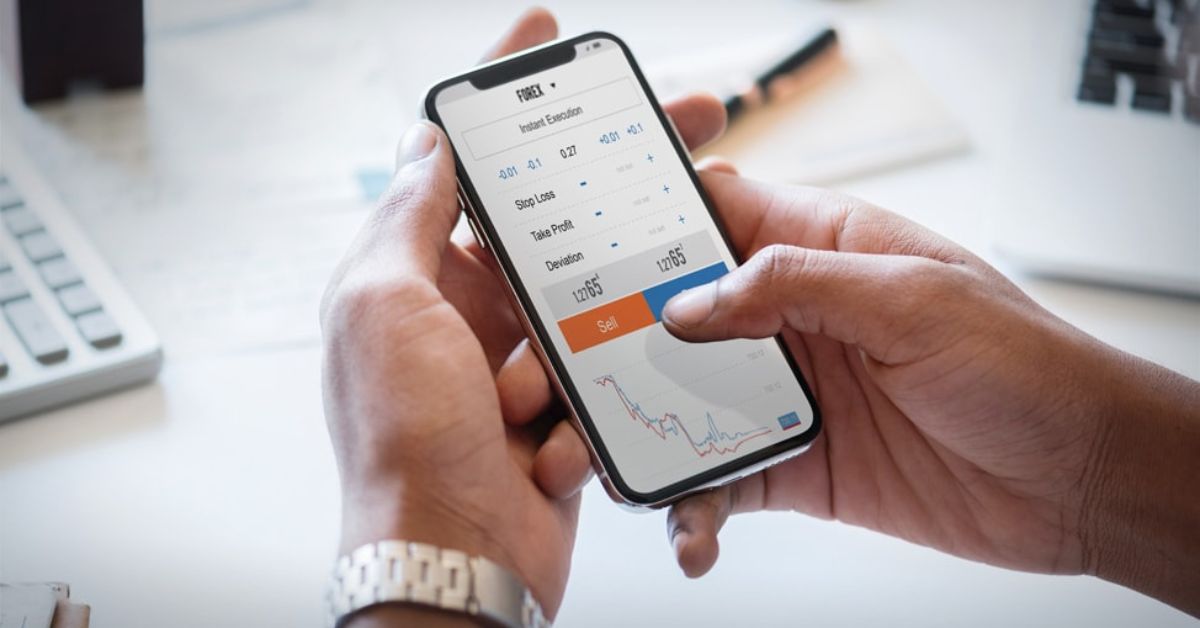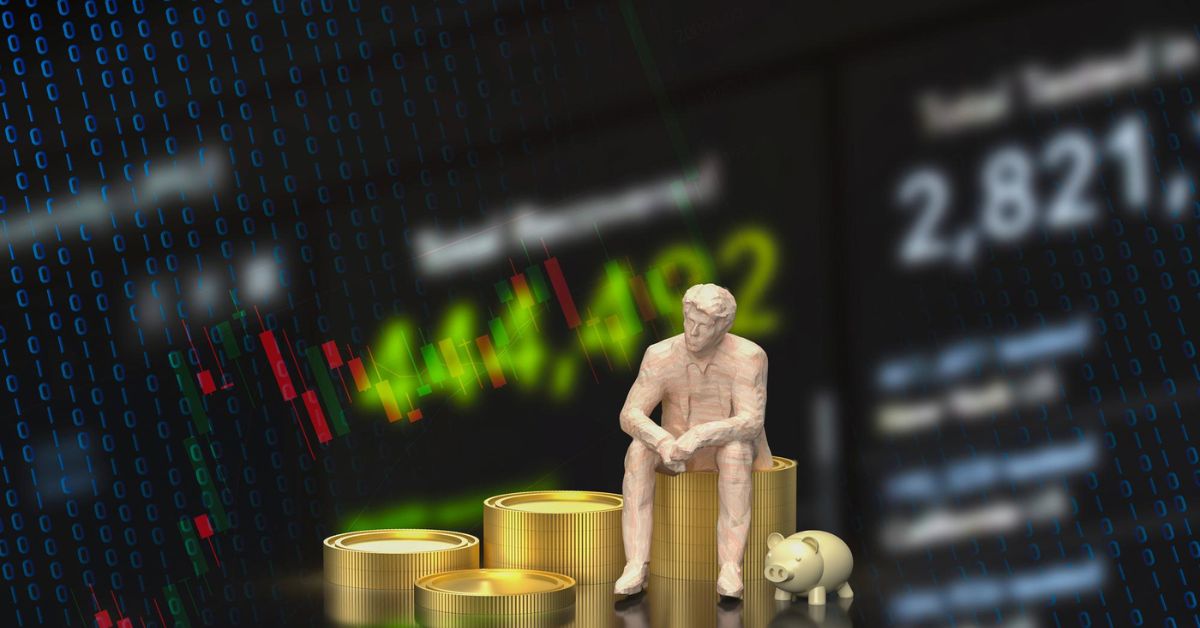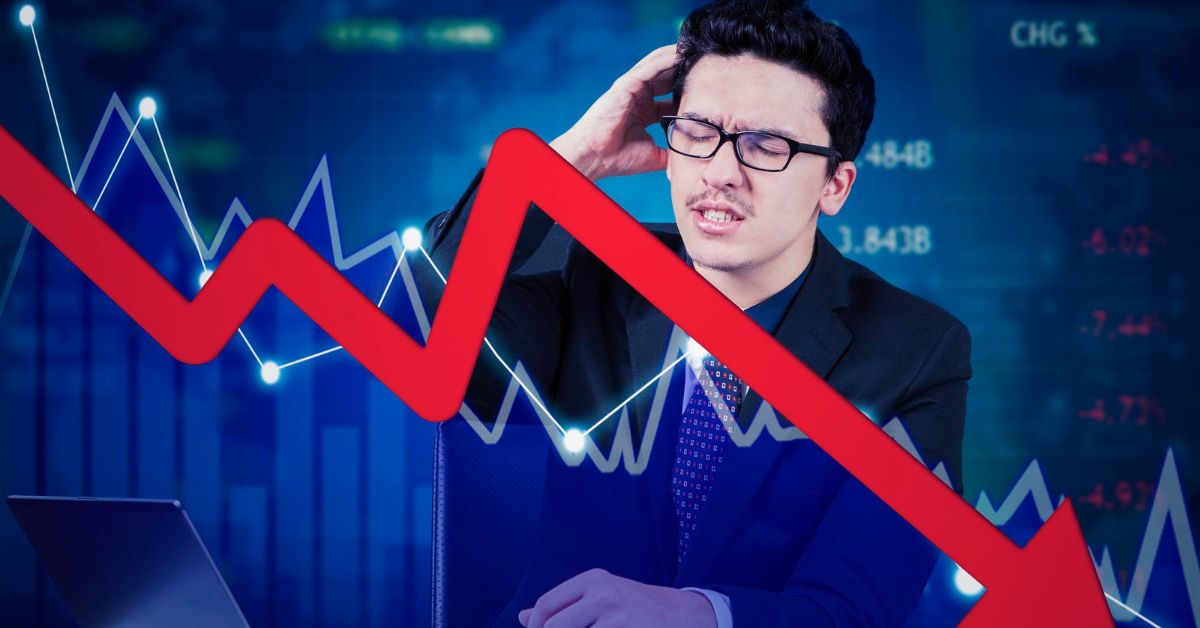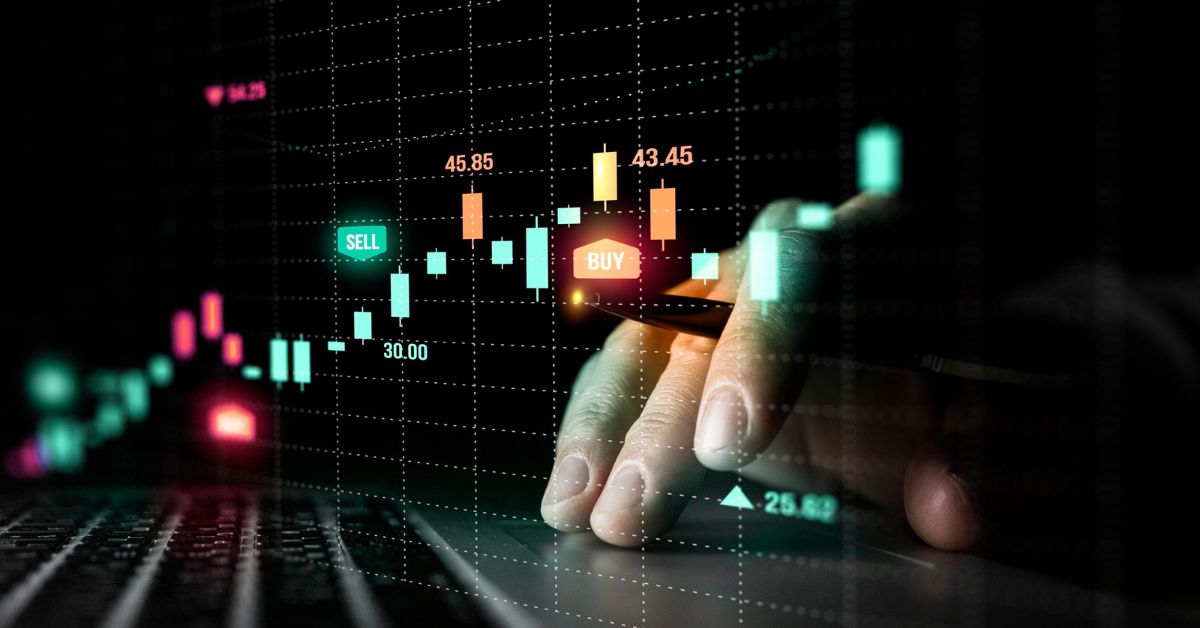Overconfidence bias is a psychological phenomenon where an individual overestimates their knowledge or abilities. This cognitive bias can significantly impact traders, leading to poor decision-making and financial losses. The concept of overconfidence bias is crucial for anyone involved in trading. In this article, we will explore the overconfidence bias example and its effects on trading. We’ll look at real-life examples, discuss the consequences, and offer strategies. As a result, you’ll know how to recognize and manage overconfidence.
Prime XBT is a reliable crypto trading platform that offers traders valuable resources and tools. Utilizing such a platform can help mitigate the risks associated with overconfidence bias. With the right tools, traders can make more informed decisions and avoid common pitfalls. So, join PrimeXBT today! Use promo code PRIMEOTT to receive a +7% bonus on your deposit.
What is Overconfidence Bias?

Overconfidence bias occurs when individuals overestimate their abilities or knowledge. This bias is common in various fields, including trading. Traders may believe they have superior skills or insights. This false sense of confidence can lead to significant financial losses.
Overconfidence bias is different from simple confidence. Confidence involves a realistic understanding of one’s abilities. Overconfidence, however, inflates one’s self-assessment beyond reality. This leads to risky decisions and potential failures.
Several cognitive processes contribute to overconfidence. Self-attribution is one, where successes are credited to personal skill, and failures are often attributed to external factors. This selective memory reinforces overconfidence.
Another factor is the illusion of control. Traders might believe they can control market outcomes. This is despite the inherent unpredictability of markets. Such illusions can drive traders to take unnecessary risks.
The Psychology Behind Overconfidence Bias
Overconfidence bias stems from various cognitive processes. One key process is self-attribution. Traders attribute successes to personal skills. Failures, however, are blamed on external factors. This selective memory boosts overconfidence.
Another factor is the illusion of control. Traders believe they can influence market outcomes, but this belief is often unfounded. Markets are inherently unpredictable. Emotions also play a crucial role. Positive emotions can inflate confidence levels, leading to overestimation of abilities. Conversely, negative emotions are downplayed or ignored.
Another contributing factor is the availability heuristic. Traders recall recent successes easily, which skews their perception of skill. They forget past failures or downplay them. Confirmation bias further exacerbates overconfidence. Traders seek information that supports their beliefs. Contradictory evidence is often disregarded, reinforcing their existing views.
Social influences also impact overconfidence. Successful traders may receive praise and admiration. This external validation boosts their confidence. It may lead to overconfidence.
Overconfidence Bias Examples
Overconfidence bias can lead traders to make risky and poorly informed decisions. Here are some historical and modern examples that illustrate this bias in action:
Historical Examples
One famous example is the 1998 collapse of Long-Term Capital Management (LTCM). The hedge fund was run by esteemed economists who believed their models were foolproof. This overconfidence led to risky trades, and eventually, LTCM faced massive losses.
Another example is the 2000 dot-com bubble. Investors were overly confident in tech stocks. They believed prices would keep rising. This led to speculative investments. When the bubble burst, many faced significant losses.
Modern Examples
In recent years, the 2008 financial crisis highlighted overconfidence. Financial institutions believed in their risk models, but they underestimated the possibility of widespread default, which contributed to the crisis.
Another example is the GameStop trading frenzy in 2021. Many retail investors were overconfident, believing the stock would keep rising. This led to significant volatility, and some investors faced huge losses.
How Overconfidence Bias Affects Trading Decisions

Overconfidence bias can lead to detrimental trading decisions. Traders may overestimate their knowledge. This results in excessive risk-taking and overtrading.
One effect is the underestimation of risks. Traders might ignore potential losses. They believe their decisions will always be profitable. This can lead to significant financial damage.
Another issue is ignoring market signals. Overconfident traders trust their instincts too much, and they may disregard important data, which results in missed opportunities or losses. Overconfidence can also hinder diversification. Traders might concentrate investments on a few assets.
They believe in their chosen assets excessively, increasing their vulnerability to market swings. Risk management practices are often neglected. Overconfident traders think they can handle any situation. They may avoid using stop-loss orders, leading to catastrophic losses.
Overall, overconfidence bias distorts trading strategies. Recognizing its effects is crucial.
Signs You Might Be Experiencing Overconfidence Bias
Recognizing overconfidence bias in yourself is crucial. Here are some signs to watch for:
Attributing Success to Personal Skills
You might believe that your trading success is solely due to your skills. When trades go well, you take full credit. This self-attribution ignores market conditions or luck. Conversely, when trades fail, you blame external factors.
This selective memory unjustifiably boosts your confidence. Recognizing this pattern is crucial. It can help you maintain a realistic view of your abilities. Acknowledging external influences is key to balanced self-assessment.
Believing in Superior Knowledge
You may feel you possess superior market knowledge. This belief persists even if your results are mixed. Overconfidence can make you dismiss contrary information. You trust your judgment over factual data. This inflated self-view can lead to risky decisions.
Recognize that markets are unpredictable. No one has perfect knowledge. Maintaining humility and seeking diverse perspectives are essential. This helps in making informed and balanced decisions.
Ignoring or Downplaying Market Signals
You might rely heavily on your intuition. This reliance can lead you to ignore crucial market signals. Data and analysis take a back seat. Overconfidence makes you trust your gut feeling excessively.
This approach can result in significant losses. Recognize the value of market indicators. Balance intuition with data-driven decisions. This can improve your trading outcomes and reduce risks.
Overtrading
Overconfidence often leads to overtrading. You might trade frequently, believing each move will be profitable. High trading volume increases transaction costs and exposes you to greater market risks.
Overtrading can deplete your capital quickly. Recognize the dangers of excessive trading. Implement a disciplined trading strategy. This includes setting limits on trading volume.
Neglecting Risk Management Practices
You may need to pay more attention to essential risk management practices. Overconfidence can make stop-loss orders seem unnecessary. Diversification might be ignored. This increases your exposure to potential losses.
Effective risk management is crucial in trading. Recognize the importance of stop-loss orders. Diversify your portfolio to mitigate risks. These practices protect your capital.
Feeling Invincible After Wins
A winning streak can inflate your confidence. You might feel invincible after several successful trades. This can cloud your judgment. Overconfidence from recent wins can lead to complacency.
It increases the likelihood of taking undue risks. Acknowledge that wins are part of trading. They do not guarantee future success. Maintain a balanced perspective to avoid complacency.
Seeking Confirmatory Information
Overconfident traders seek information that supports their views. Contradictory evidence is often dismissed. This confirmation bias reinforces overconfidence.
It creates an echo chamber of supportive data. Recognize the importance of diverse perspectives. Seek out contrary opinions and data. This balanced approach helps in making informed decisions.
Consequences of Overconfidence Bias in Trading

Overconfidence bias can have severe consequences for traders. These effects can harm both short-term and long-term trading outcomes. Here are some key consequences:
Increased Financial Losses
Overconfident traders often take excessive risks because they believe their decisions are infallible. This leads to significant financial losses, which, over time, can be devastating. Ignoring risk management exacerbates these losses. Effective risk management is crucial because it helps mitigate the impacts of overconfidence. Without it, traders can quickly deplete their capital.
Poor Decision-Making
Overconfidence distorts judgment. Traders may ignore crucial data and rely solely on intuition. This results in poor decision-making. Consistently bad decisions accumulate losses. Ignoring market signals exacerbates these errors. Over time, poor decisions can severely impact trading performance. A balanced approach, combining data and intuition, is essential. This helps in making more informed decisions.
Reduced Diversification
Overconfident traders often concentrate investments on a few assets. They believe strongly in their chosen assets. This lack of diversification increases vulnerability to market swings. A sudden market shift can cause severe portfolio damage. Diversification spreads risk across various assets. It reduces the impact of any single loss. Balanced portfolios are more resilient to market volatility.
High Transaction Costs
Frequent trading, driven by overconfidence, incurs high transaction costs. Each trade involves fees and commissions. Over time, these costs add up significantly. They eat into profits, reducing overall returns. High transaction costs can negate gains. A disciplined trading strategy helps in managing these costs. Limiting trades to well-considered decisions is crucial.
Ignored Stop-Loss Orders
Overconfident traders often neglect stop-loss orders. They believe they can recover from any loss. This can result in catastrophic financial damage. Stop-loss orders are crucial for risk management. They limit potential losses by automatically selling assets. Ignoring them exposes traders to unlimited losses. Implementing stop-loss orders protects against severe downturns.
Emotional Stress
Significant losses due to overconfidence can cause emotional stress. Stress negatively affects trading performance and leads to a vicious cycle of poor decisions. Emotional trading is often irrational. It exacerbates losses and increases stress. Managing stress is crucial for successful trading. Balanced trading strategies help reduce emotional strain.
Loss of Capital
Continued overconfidence can deplete trading capital. Without sufficient capital, further trading becomes impossible. Recovering from a significant capital loss is challenging. It may take a long time to rebuild funds. Preserving capital is essential for long-term success. Effective risk management helps protect capital.
Damaged Reputation
Persistent overconfidence and resulting failures can damage a trader’s reputation. A damaged reputation impacts future opportunities, and other traders and investors may lose trust. Building and maintaining a good reputation is essential. Consistent success and prudent decision-making contribute to a positive reputation. Managing overconfidence helps preserve one’s reputation.
Strategies to Overcome Overconfidence Bias in Trading

Overcoming overconfidence bias is essential for long-term trading success. Here are some strategies that can help:
Set Realistic Expectations
Set achievable goals based on data, not overconfidence. This helps maintain a realistic outlook. Break down goals into manageable steps. This encourages steady progress and prevents excessive risk-taking. Realistic expectations reduce impulsive decisions and improve discipline.
Rely on Data, Not Intuition
Base your decisions on facts and data, not gut feelings. Overconfident traders often prioritize intuition. Data-driven decisions are more likely to be accurate. Analyze market trends, patterns, and historical data. This approach ensures better decision-making, minimizing the impact of bias.
Implement Risk Management Tools
Use stop-loss orders and diversification to manage risks. Risk management tools prevent catastrophic losses. Check out On Tilt Trading Store for trading tools that will help you manage your risk efficiently. They provide a safety net in volatile markets. Diversify your portfolio to reduce reliance on any single asset. This minimizes risk and protects your capital.
Practice Regular Self-Reflection
Regularly assess your trading decisions and outcomes. This helps identify areas where overconfidence influences your actions. Reflecting on mistakes and successes can improve judgment and encourage a balanced view of your abilities. Self-reflection is key to understanding your emotional triggers.
Seek Diverse Opinions
Engage with other traders and experts to gain different perspectives. Overconfident traders often dismiss opposing views. Diverse opinions challenge your assumptions and broaden your understanding. This helps counteract confirmation bias and leads to more informed decisions.
Limit Trading Volume
Avoid overtrading by setting clear limits on the number of trades. Overtrading is a common symptom of overconfidence. By limiting trades, you reduce transaction costs and potential losses. Focus on quality over quantity to improve trading outcomes.
Accept Losses and Learn from Them
Understand that losses are a part of trading. Overconfident traders often avoid acknowledging losses. Accepting losses as learning opportunities is crucial. Analyze what went wrong and adjust your strategy. This mindset helps improve future performance and reduces emotional stress.
Stay Humble
Maintain humility in your trading approach. Recognize that no one has all the answers. Markets are unpredictable, and mistakes will happen. Staying humble keeps you grounded and focused on continual learning, helping reduce the impact of overconfidence.
Read More: What Is The 3 3 3 Rule For Anxiety
Final Thought
Overconfidence in trading can lead to risky decisions and significant losses. Recognizing the signs of overconfidence and adopting a disciplined approach is essential for long-term success. If you’re tired of losing money due to panic selling, FOMO, overtrading, and bag holding, the Vestinda trading app can help.
With its automated crypto trading strategies, Vestinda removes emotional decision-making, allowing you to trade smarter and more effectively. Take control of your trades and reduce emotional stress for better outcomes with Vestinda.



